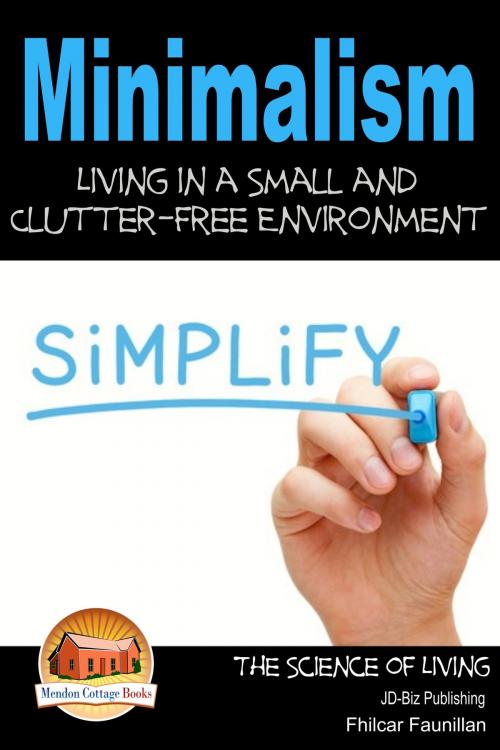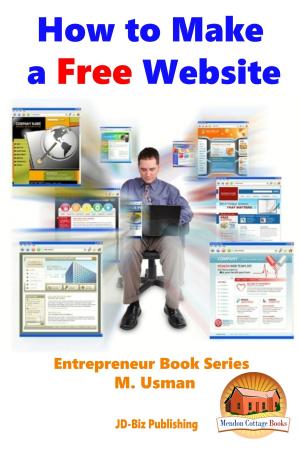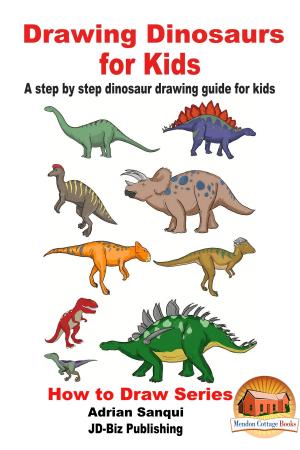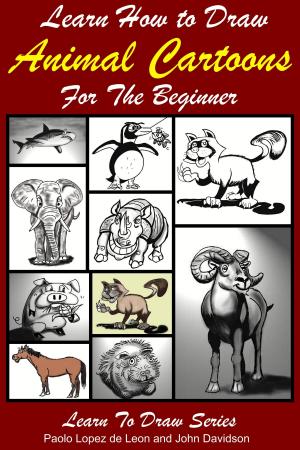Minimalism: Living in a Small and Clutter-Free Environment
Nonfiction, Reference & Language, Reference, Guides & Handbooks| Author: | Fhilcar Faunillan | ISBN: | 9781310842344 |
| Publisher: | Mendon Cottage Books | Publication: | February 24, 2015 |
| Imprint: | Smashwords Edition | Language: | English |
| Author: | Fhilcar Faunillan |
| ISBN: | 9781310842344 |
| Publisher: | Mendon Cottage Books |
| Publication: | February 24, 2015 |
| Imprint: | Smashwords Edition |
| Language: | English |
Table of Contents
Introduction
Chapter 1: Own Less, Live Best
Intentionality for Minimalist Lifestyle
Chapter 2: Benefits of Minimalism
Chapter 3: Getting Your Life Back
Becoming a Minimalist
Other Ways to Maximize Life
Minimalism in Homes
Conclusion
Author Bio
Publisher
Introduction
Minimalism is a way of living that cuts the gluttony surrounding our world. It is the exact opposite of what we see in ads, what we hear on the radio, or what commercials air on TV. It contrasts what our society has etched on our minds regarding the claimed importance of accumulating stuff. It tells us to dismiss ourselves from consumerism, instead of priding ourselves for all our material possessions, the clutters in our environment, the skyrocketing debts, and an abundance of infinite distractions.
People are joining the craze of the material world and we are left with a meaningless one. People are crazy over lots of stuff, with closets full of clothes, racks full of shoes, garages stacked with useless gears, basements cluttered with boxes of what seems like hoarding of old items. They are living the typical life: working hard to make good money, spend a great chunk on it to pay for mortgage, buy fancy clothes, and keep up with friends who have luxury cars, or get a hand of cool technology which are seen as bragging rights.
It is hard to see and realize that we do not need any of these, and that life is more meaningful when there are no people to impress, that we do not have to spend so much on stuff we don’t need just to make us happy, and that a rise in pay wouldn’t necessarily mean a rise in cost of living. It takes a turning point to make people aware that they are losing themselves over their material possessions. And this point could be achieved by the continuous effort of dissenters who encourage a simpler, less materialist life.
Living a minimalist lifestyle means throwing out what you do not need and focus only on those that you need. We only need little to survive while still living happily. We only need the small things to keep content in our hearts. The stuff that surround us are only depictions of materialism, and the society telling us that we have to consume more of it is just a way of luring us into consumerism. These things do not matter and do not account for our own happiness.
Table of Contents
Introduction
Chapter 1: Own Less, Live Best
Intentionality for Minimalist Lifestyle
Chapter 2: Benefits of Minimalism
Chapter 3: Getting Your Life Back
Becoming a Minimalist
Other Ways to Maximize Life
Minimalism in Homes
Conclusion
Author Bio
Publisher
Introduction
Minimalism is a way of living that cuts the gluttony surrounding our world. It is the exact opposite of what we see in ads, what we hear on the radio, or what commercials air on TV. It contrasts what our society has etched on our minds regarding the claimed importance of accumulating stuff. It tells us to dismiss ourselves from consumerism, instead of priding ourselves for all our material possessions, the clutters in our environment, the skyrocketing debts, and an abundance of infinite distractions.
People are joining the craze of the material world and we are left with a meaningless one. People are crazy over lots of stuff, with closets full of clothes, racks full of shoes, garages stacked with useless gears, basements cluttered with boxes of what seems like hoarding of old items. They are living the typical life: working hard to make good money, spend a great chunk on it to pay for mortgage, buy fancy clothes, and keep up with friends who have luxury cars, or get a hand of cool technology which are seen as bragging rights.
It is hard to see and realize that we do not need any of these, and that life is more meaningful when there are no people to impress, that we do not have to spend so much on stuff we don’t need just to make us happy, and that a rise in pay wouldn’t necessarily mean a rise in cost of living. It takes a turning point to make people aware that they are losing themselves over their material possessions. And this point could be achieved by the continuous effort of dissenters who encourage a simpler, less materialist life.
Living a minimalist lifestyle means throwing out what you do not need and focus only on those that you need. We only need little to survive while still living happily. We only need the small things to keep content in our hearts. The stuff that surround us are only depictions of materialism, and the society telling us that we have to consume more of it is just a way of luring us into consumerism. These things do not matter and do not account for our own happiness.















